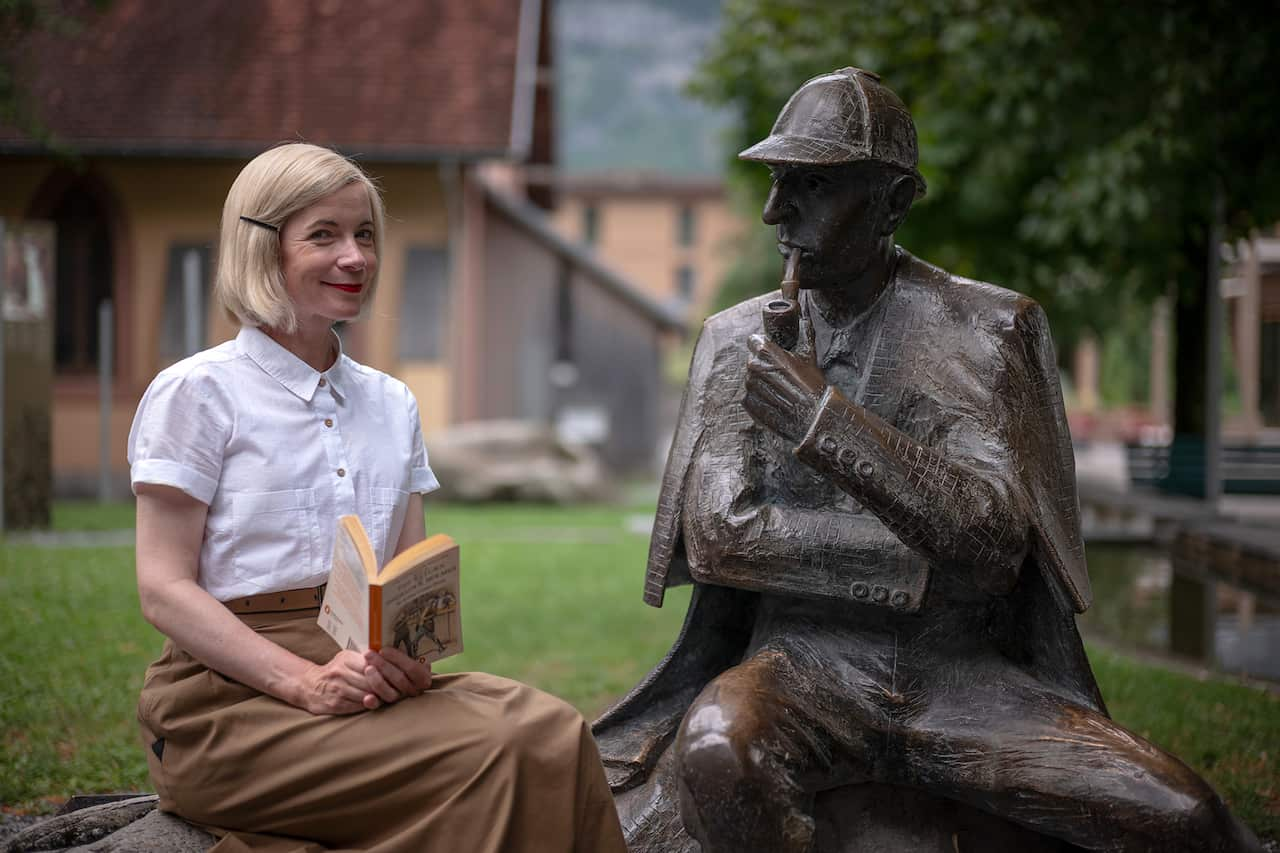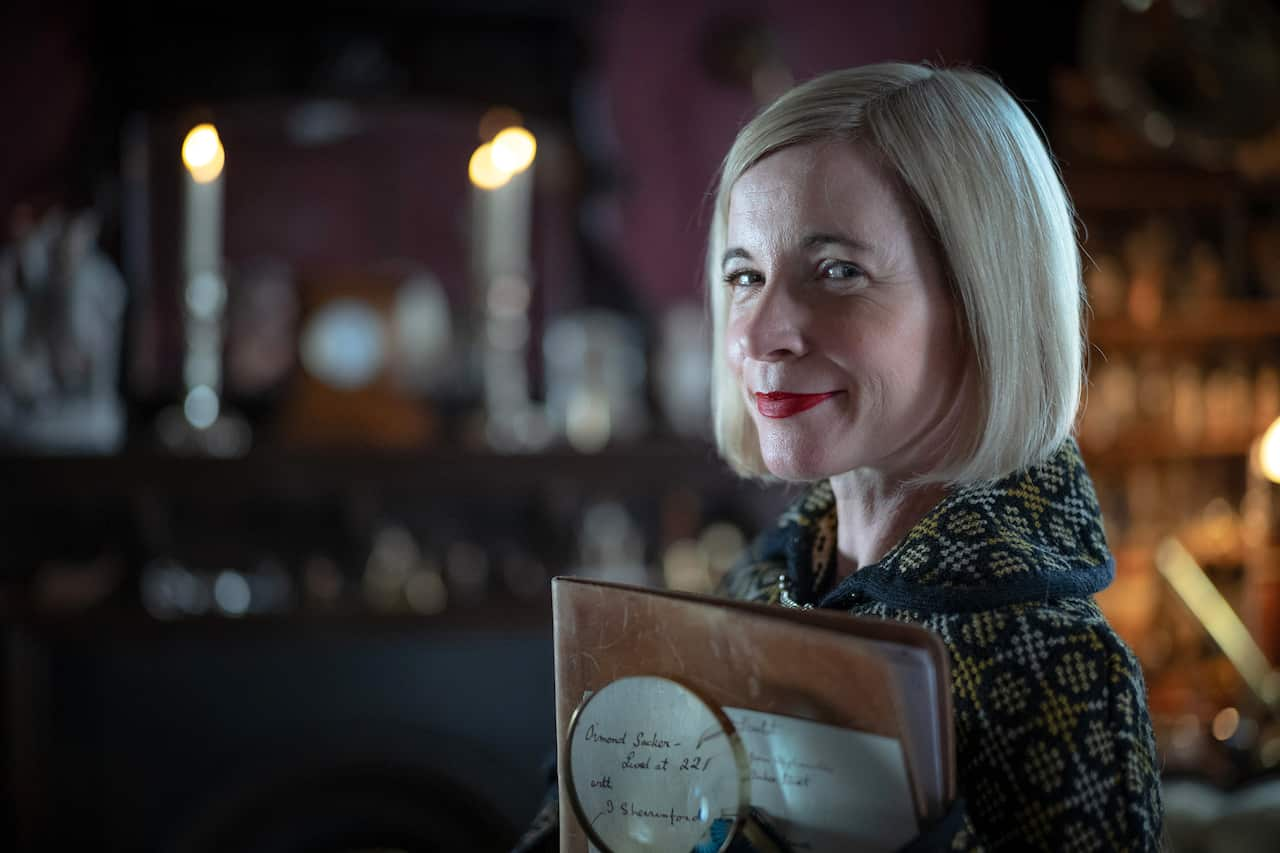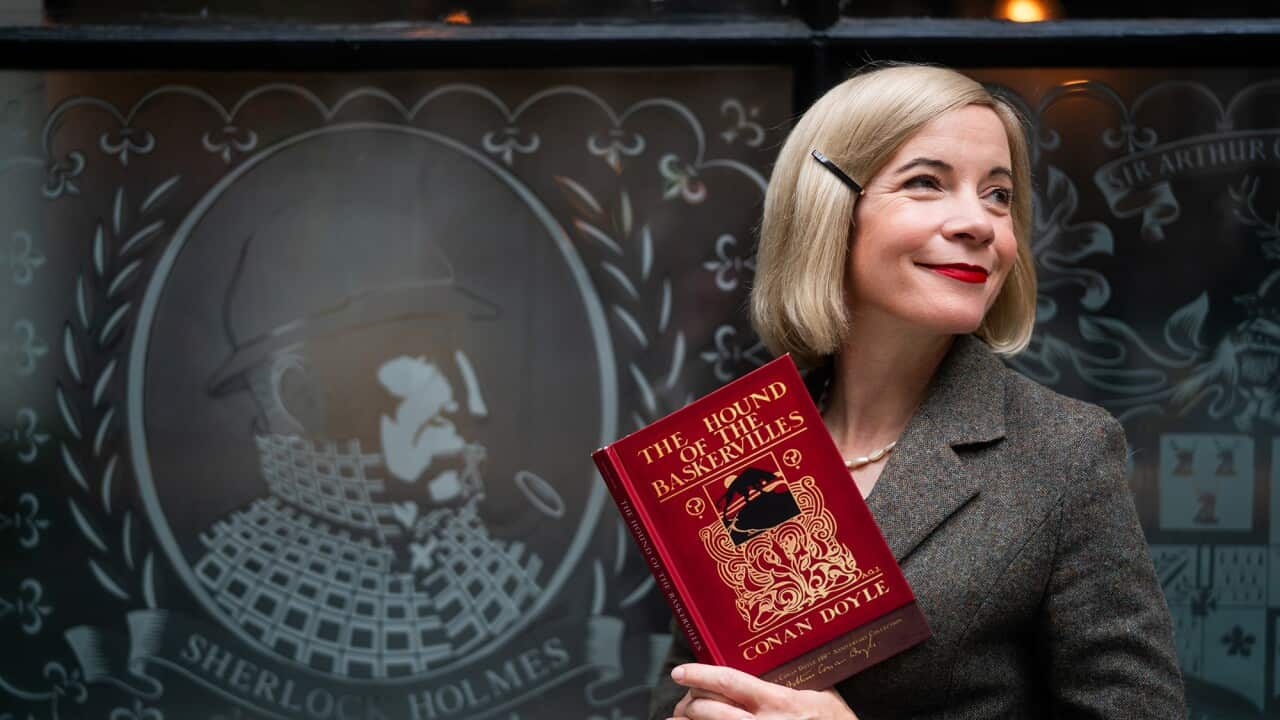Sherlock Holmes is the world’s most famous fictional detective and features in more than 60 original stories, as well as countless adaptions. For more than a century, he has intrigued and excited his fans with his intellect and powers of deduction, and he made his creator – the author Arthur Conan Doyle – rich and famous. But the writer came to hate his fictional character.
In three-part series Killing Sherlock with Lucy Worsley, historian and lifelong Sherlock Holmes fan Lucy Worsley investigates the extraordinary love-hate relationship between Holmes and Doyle, detective and author, in a unique parallel biography of Sherlock Holmes and the complex man who created him.
"On the surface, his life was golden, but he was not happy," says Worsley of Conan Doyle, talking about what she discovered while making Killing Sherlock.
The series unearths Sherlock’s origins in Conan Doyle’s early life as a medical student, unpicking his early stories and revealing the dark underbelly of late Victorian Britain – from drug use to true crime. She explores Doyle’s growing disenchantment with his detective creation and desire to distance himself from Sherlock, taking on the role of detective himself, in one of the most important legal cases of the 20th century; and investigates the darkness of his later stories, mirroring the reality of Conan Doyle’s life after the loss of his eldest son, declining public appeal and a spat with a very famous magician. Sherlock Holmes, by contrast, found a life beyond his author, on stage and screen.
Here, Worsley talks about what fascinates her about Sherlock Holmes, how Conan Doyles' experiences informed his writing, and how these stories can be a wonderful way to learn about the past.

What made you want to put your powers of investigation to the subject of Arthur Conan Doyle?
I have had a huge, weird crush on Sherlock Holmes since I was about nine or 10! My top favourite story is The Hound of the Baskervilles, which I have read more times than I can count. Although I love Sherlock Holmes, I have always felt less warmly about his creator, Arthur Conan Doyle, who seems to me like a man who was a bit pleased with himself. But one thing that did intrigue me, is the way that he seemed to be ashamed of his hugely popular character Sherlock Holmes. I thought we could find a way of making him sympathetic, and interesting - and perhaps even vulnerable - by probing into his life and his papers, and looking at his feelings of inadequacy in relation to Sherlock and conceiving a series that was about a battle between the two of them for life, and death.
What is it that makes the character of Sherlock Holmes so engaging, and so long lasting in its appeal?
Mr Holmes is a character that you can transport to various times and cultures: he’s so distinctive and he makes sense in different times and places. And you can see that in the endless stream of film and television adaptations of his story. He’s female, he’s Asian: he can work in so many different contexts.

And also, Conan Doyle’s writing is very modern as well.
Yes, his writing is extremely fast paced and when the original stories were published, they were intensely modern. If we watch screen or TV adaptations now there is a tendency to think there is something ‘heritage’ about them, but Conan Doyle was very up to date with medical technology, with forensic methods with guns and weapons, lots of different skills so for the first readers, Sherlock Holmes was very innovative. I think an equivalent today would be a mix of CSI for all the forensic and scientific detail and Line of Duty in terms of how audiences are teased with clues, some of them red herrings.
Also, because he was writing in a short story form, it really works – the dialogue is very clever, his description of the world around him is so strong and atmospheric but very, very light as well. No words are wasted. It’s addictive.
What do you like about the character Sherlock Holmes?
Well, I think that what a person may like about Sherlock does not necessarily reflect well on that individual! He is a loner, he likes reading, he is very immersed in and motivated by his work and he doesn’t like parties, which sound a lot like me!
He also knows how clever he is, which is not something that one should aspire to. But on the plus side, he cares a lot about putting wrongs right, and he is loved by his friend, Dr Watson. who is such a lovely guy. I think there must be something loveable about Sherlock Holmes, if Dr Watson feel so strongly about his friend.

Considering how popular the Sherlock Holmes stories went on to become, it is surprising to discover that Conan Doyle had many rejections before finding a home with The Strand Magazine
Yes, it is really surprising! Sherlock Holmes was a slow burn and rejected three times before Arthur found a publisher and that is because he was looking in the wrong place. He pitched Sherlock Holmes to very upmarket publishers, like today’s New Yorker. Sherlock Holmes was just too mainstream for that. The rejections scarred Arthur and made him slightly ashamed of his character, because he wanted to be a high brow writer. Nevertheless, he persevered because he was short of money, and he had a family to support, and he was also very, very hardworking, and energetic.
After Sherlock’s first two outings, both of which were lacklustre in terms of readership, his literary agent suggested a new magazine called The Strand, which was a mid-market magazine aimed at commuters, who were hustling and making a life for themselves in the busy throbbing urban world of London, in the 1890s, that Arthur struck gold.
The Strand was looking for short stories, which suited commuters who enjoyed stories with a recurring character, with readers coming back week after week, month after month. The Strand was selling to a quarter of a million readers every month, so Conan Doyle found himself getting seriously rich, and in turn Sherlock Holmes was integral to The Strand Magazine’s success.
Arthur appeared to have everything he ever wanted... on the surface his life was golden, but he was not happy, because it was not the success he dreamed of. He wanted to be taken seriously.
What is the most surprising thing you learned while making the series?
With the success of Sherlock, Arthur appeared to have everything he ever wanted, including appearing in The Strand Magazine as one of the celebrities of the age. On the surface, his life was golden, but he was not happy because it was not the success he dreamed of. He wanted to be taken seriously as an upmarket, respectable establishment figure.
This desire comes from his backstory, I think: he had a difficult childhood. His father’s alcoholism, and the time he spent in an asylum, meant he could not work, Arthur's mother worried constantly about the family finances. Arthur himself was a man with secrets, he began a relationship with a much younger woman, an opera singer, who he eventually married. So, Arthur Conan Doyle, like so many Victorians, is not quite the man he presents on the surface.
But I also grew to have great sympathy for Arthur, particularly when he lost his son just before the end of World War One. He became interested in seances and mediums in an attempt to make contact once again, it’s heart-breaking. Once you see him as a grieving father, it changes your perception of him and made me see him as a human being, someone you cannot totally worship or totally dislike because he is human like all of us.

Conan Doyle took inspiration from his early medical training and experience which informed his writing and Sherlock’s powers of observation and deduction and seeing patterns in things, he could be described as an early adapter or forensic science.
Yes. One of the ways in which Arthur made Sherlock really exciting and thrillingly current was by incorporating scientific and medical advances. Sherlock was inspired by a teacher Arthur had at medical school in Edinburgh, Dr Joseph Bell, who was skilled in looking very closely at the patient to discover tiny clues that would help inform his diagnosis. Arthur wanted to create a detective who would treat crime in the way that Dr Bell had treated disease. He was operating right at the forefront of medical and police practice. For example, in the first story of A Study in Scarlet, we see Sherlock adopting the role of a crime scene investigator, clearing the room, and closely examining every inch of the floor to find a little heap of cigarette ash, which he puts into an envelope. This was not contemporary police practice at the time, but he was acting like a crime scene investigator would today, finding clues. Because of his encyclopaedic knowledge of the various kinds of ash produced by different cigars, Sherlock can detect which brand the murderer had been smoking - which was an exciting new way of investigating a crime scene, which in the 1880s is incredible.
What did you find the most interesting part of Conan Doyle's personality and how that informed his writing?
Because Arthur was at medical school, and later became a member of the establishment, including being knighted by the King, you would think, oh, he must have been a really rational person. But in the 1920s after the death of his son we see his growing interest in mysticism.
It is fascinating that Arthur thought that the paranormal was a new frontier of science...
I think it must have always been there and it came to the fore in the 1920s, he became a spokesperson for spiritualism in a way that made him into something of a figure of fun. It is fascinating that Arthur thought that the paranormal was a new frontier of science, which would in time be proved to exist. If you think about what a medium does, they put you in touch with your loved ones, making you feel better, a way of dealing with grief if you like, and this is exactly what Sherlock did. He made things better for people, like the role of a priest or a mystic. If Arthur had not always had that sort of interest in what lies beneath our rational selves, perhaps he would not have been capable of creating Sherlock Holmes.
Who is your favourite incarnation of Sherlock Holmes, and why?
I really hope that if people watch our show, they will want to go and revisit the original: between the covers of the books. I really want to take people back the original stories and to reading. But if you were to press me for a favourite Sherlock Holmes, who appeared on the screen, I particularly like Basil Rathbone, in The Hound of the Baskervilles, where Sherlock Holmes is of course brilliant, but also the whole creepy phantasmagorical world of Dartmoor that's created through the mist, and the very fantastical set that you can imagine might be a bit wobbly if you stood too close to it.
What do you hope viewers take away from this series?
I hope they take away some of my own love for Sherlock Holmes, I also hope viewers will see how literature is an effective way of learning more about the social history of that period. We get a window into what people's lives were like then, which I think is a fun way of learning about the past.
This is an edited version of material supplied by The BBC.
Episodes one and two of Killing Sherlock with Lucy Worsley are streaming at SBS On Demand, with episode three arriving Thursday 12 May. The three-part series is also airing on SBS on Thursday nights, with the final episode airing on May 12.
